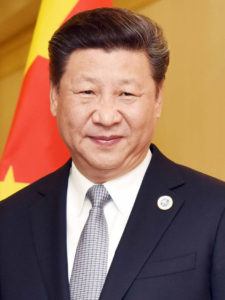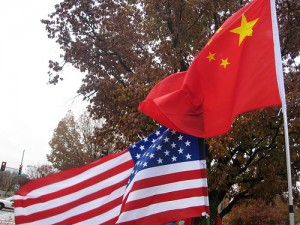
Chinese and American flags flying together
When I originally formulated this article it was just “Why does the CCP accomplish its goals?”
But that’s a stupid article. Certainly there are governments which fail to accomplish their goals, in countries which lacks state capacity or are in constrained positions. But for most of my life most Western governments haven’t been all that constrained, they just acted as if they were.
The truth is that Western governments have mostly accomplished their goals over the last 45 years: it’s just that their ur-goal was to make the rich richer. If that meant burning everything else down, they were OK with that. There are a number of reasons for this, but basically political elites were bought: do what the rich want and even if you lose office you’ll be very well taken care of. Instead of viewing government as “theirs” and their countries as “belonging to them” they viewed political office as a way to get rich. Instead of viewing the rich as their competitors for power, to be kept under control, they viewed them as their benefactors and as the ones who could put them into office. Or, put another way, most elected representatives saw themselves as de-facto employees, or contractors, of the rich and corporations.
This view has explanatory power: politicians do what you’d expect them to do if it were true. Take a look at Trump: his budget has 4 trillion in tax cuts for the rich, and to partially pay for those cuts, it is getting rid of 800 billion in Medicare funding. The idea that he’s some sort of economic populist is laughable. He’s making the rich get richer, just like every other President since Carter (though Reagan was the real inflection point.)
This wasn’t always the case. From 33 till around 68 or so, the primary policy goal in America was the growth and prosperity of the middle class, and most politicians, while they’d take the money of corporations and rich to some extent, saw them as the enemy, to be kept under control.
So, let’s turn to the CCP. They have lifted more people out of poverty than every other country combined. The one-child policy, whether you agree with it or not, did get China’s population growth under control. They are ahead in 80% of techs, when 20 years ago that number belonged to the US. They have the largest industrial economy in the world. They are reducing housing prices, which was their goal. They are reducing inequality and smashing the number of billionaires. They are installing more renewable energy than the rest of the world combined. They are building industrial stacks so that nothing they actually need comes from the rest of the world—they’re not quite there yet but they will be. (Don’t invest in TMSC long term, their near monopoly position is almost over and they will soon be overtaken by the Chinese. Three to five years at most is my guess.)
The CCP accomplishes its goals. Its primary goal is:
The Preservation of its own power. There are two branches to this: avoidance of foreign military conquest or regime change, and avoidance of domestic collapse or revolt.
To be powerful, and thus not be at the mercy of foreigners (one of Mao’s main goals) requires an educated, prosperous population and an industrial economy, because military power post-industrial revolution is primarily a result of technology plus industry. If another country can defeat you militarily, you won’t stay in power if they don’t want you to.
Domestically if the population loves you (and all polling shows vast support for the CCP) you will keep power. If they despise you, you will eventually lose power. The Soviets, with all their tanks and soldiers, fell in part because neither the people nor the elites believed in rule by the Party any more. So making the people prosperous is job one for protecting the CCP’s rule. Prosperous people don’t revolt. The Chinese believe this more than any other civilization. The entire “Mandate of Heaven” is based on this, and for over two thousand years the Chinese have regarded the government as responsible for prosperity. When it can no longer provide it, not only is overthrowing it justified, it is even virtuous. On the other hand, to overthrow a government which takes care of the people is vile, and understood as such.
Likewise, if one doesn’t want a change in which elites control the country, one can’t allow domestic power centers other than the party to spring up. This is why the CCP has been crushing billionaires. This is why the CCP banned the Falun Gong (who had widespread membership, including members in the CCP.) Bilionaires were particularly pernicious, because they corrupted party members, and those members goals changed from keeping the CCP in power by making China stronger and people more prosperous, to making a small number of people rich at the cost of general prosperity.
Xi was absolutely correct to make going after corruption his first and most important goal, because the CCP had split into factions and those factions were putting their own prosperity and strength above those of the party and the country. Left unchecked China would have fallen into a corruption spiral, inequality would have spiralled out of control and even if the CCP existed in form, it would no longer be its own power center, but controlled by others.
Now it should be understood that the CCP’s basic ideology isn’t “stay in power at all costs”. Like all ideologies it justifies it otherwise. It would say, and many party members, probably including Xi, would say that the party wants to stay in power because it can make China powerful and prosperous.
Given China’s progress since the party took over (and there was plenty of progress under Mao, don’t let anyone tell you otherwise — education and lifespand went way up), the CCP feels entirely justified in this belief.
Of course all things pass, and at some point the CCP will fail and be replaced, either in form (abolished) or by takeover. The Democratic party still exists in America, after all, but FDR or even LBJ would not recognize it, nor have any respect for it. Even Carter, the original neoliberal, by the end of his life, found it abominable. (I suspect young President Carter didn’t fully understand the consequences of what he helped birth.)
But for now, the CCP stands in its glory, having accomplished much of what it originally set out to do. It kicked out foreign occupiers. It made China strong enough that it could no longer be pushed around or occupied. It made the Chinese people prosperous. It gained the technological and industrial lead over the West.
It did so because it regards China as belonging to it, and believes that it has a responsibility to the people of China and that it deserves and will keep its power only if it delivers for the people of China: not for a minority, but for the masses.
None of this is to say the CCP is perfect, just that it’s an effective government which actually wants a prosperous population.
Our governments are effective, but what they want is richer rich people. As a result they will become ineffective and at some point they will either fall and change form and rise again, or they will devolve into full-on failed states.
If you’ve read this far, and you read a lot of my articles, you might wish to Subscribe or donate. I’ve written over 3,500 posts, and the site, and Ian, take money to run.

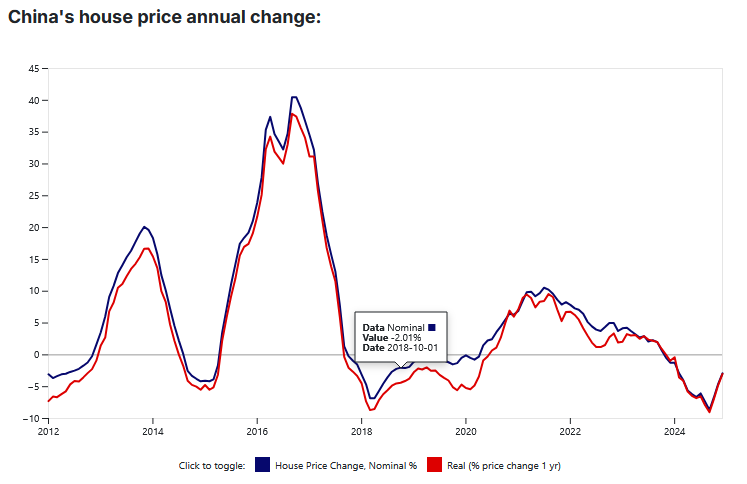
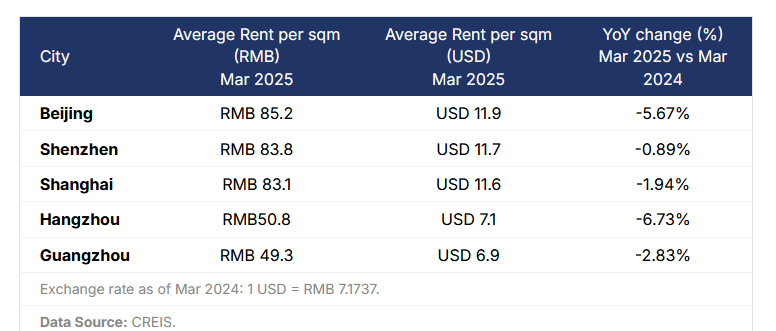

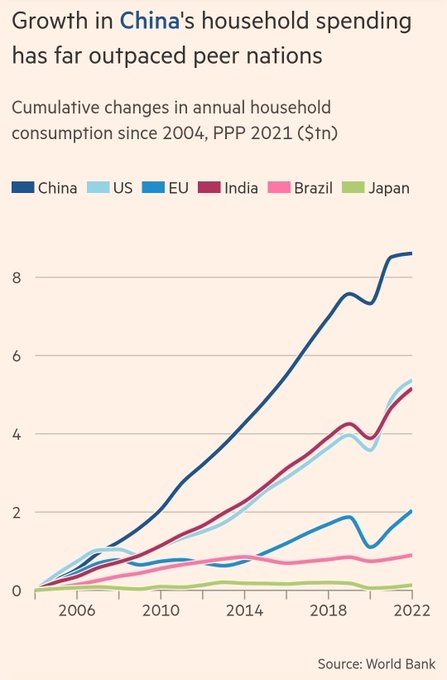




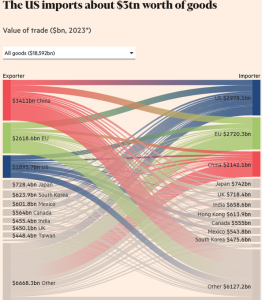 Well, maybe. Who the hell knows what he’ll do. Anyway, tariffs are back to 30% on China and 10% on America.
Well, maybe. Who the hell knows what he’ll do. Anyway, tariffs are back to 30% on China and 10% on America.